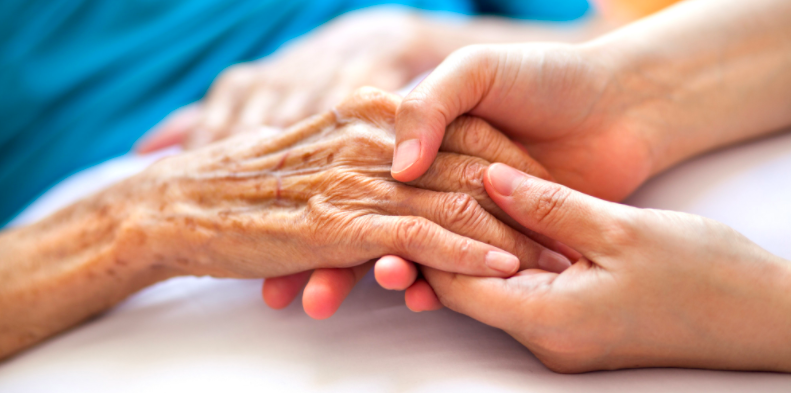Thoughts on parashat Va’etchanan.
The Torah contains the Divine laws. These laws are our moral and ritual guidelines on how to live a just and happy life, filled with blessings. The core of our moral code is Aseret ha-Dibrot – The 10 Commandments, which we find in this week’s parasha, Va’etchanan, the second parasha of The Book of Deuteronomy.
According to some the book of Deuteronomy is the most spiritual book of the entire Torah. One of the arguments for this claim is that this book not only contains Divine laws, with the repetition of the entire Decalogue, but also provides us with additional justifications for the commandments. In the other books of the Torah these justifications also appear, but here there are much more of them. For example, the 4th commandment, regarding observing Shabbat, has a quite different justification than the one that appears in the first expression of the Decalogue, in Exodus 20. In Exodus 20 we learn that we shall observe Shabbat because God finished his work and rested. Here we learn why the strangers and our slaves should observe Shabbat as well:
[…] You shall not do any work—you, your son or your daughter, your male or female slave, your ox or your ass, or any of your cattle, or the stranger in your settlements, so that your male and female slave may rest as you do. Remember that you were a slave in the land of Egypt and the LORD your God freed you from there with a mighty hand and an outstretched arm; therefore the LORD your God has commanded you to observe the sabbath day. (Deuteronomy 5:14-15)
This is just one example. But what I would really like to focus on today is not the 4th commandment, but the 5th, pertaining honoring the parents.
Our tradition says that three persons are involved in the formation of a human being: God, father and mother. That’s why this commandment was written on the first tablet, together with all the commandments regarding divine matters, even though this commandment pertains to social matters. This juxtaposition likens our parents to God Himself and this gives us another reason why we should honor them.
It was your parents who gave you life and quite often, though not always, who decided to bring you to life, to create you. They didn’t have to do it. Indeed, this mitzvah teaches us to be grateful for the sole fact of our existence. Gratitude towards parents is not always easy, neither is gratitude for our existence. The last one it’s a sign of experience and maturity.
What is crucial and unique regarding this mitzvah is that it doesn’t command you to love your parents, while the Torah commands you to love God and your neighbor. The absence of love is deliberate here. There are times when it is difficult and challenging to be respectful towards a parent – someone you do not choose. The Torah never commands something that is impossible to observe. The Talmud was aware of all of that and that’s the reason it regards this commandment as one of the most difficult to perform properly. The Hebrew word for “honor” (ka-bed) consists of the same letters as the Hebrew word for “heavy” (ka-ved). The only difference is a dagesh (a dot) in the second letter. However, since the task is hard, the reward for it is high: the rabbis said that the proper fulfillment of this mitzvah guarantees man a place in olam haba.
At the same time, while honoring your parents is a tremendous mitzvah, you also need to be responsible for your own welfare. One is not required to endanger his emotional or physical health for a parent. Therefore, if a child cannot cope with the parent’s behavior, he is permitted to keep his distance.
The Talmud and other works of rabbinic literature elaborate on this topic in a very detailed way. Our task is to study it meticulously because the proper understanding and living by this commandment is indispensable to making a good society. This mitzvah also teaches us that our feelings are less important than our behavior. In our life we are often obligated to behave in certain ways whether we feel like it or not.
Honoring parents is also an act of taking care of our relationship with them. To take care of relationships with others is important: it’s always better to be surrounded by friendly and benevolent people than by mean and spiteful. The case of our relationship with our parents is unique: it is always a life long relationship, even if this relationship is at some point completely broken for this or other reason. Generally speaking, if our relationship with a parent is good, friendly and free of resentment and sense of guilt, it will remain good and free from these things even after they pass away. Then, after a period of grief caused by the loss, good feelings about them will prevail and their memory will become our blessing. If the relationship was bad, full of resentment and anger, remembering them will always bring some of it in the future, even if the situation was extreme and we experienced their passing as some sort of relief. Thus, our tradition teaches: Honor your mother and father no matter what. It’s way easier to live with a clear conscience. The feeling that we did all the good we could (if we, in fact, did), paves the way to having a clear conscience. Thus, taking care of the relationship with our parents means also taking care about ourselves and there is nothing wrong in framing it this way: it gives us another reason to perform one of the greatest mitzvah in the entire Torah, through which we obtain a place in olam haba.
Shabbat shalom!

